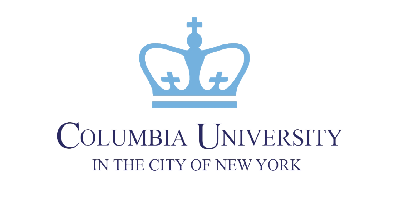Job posting has expired
Neurophysiology Coordinator
 Columbia University Columbia University | |
 United States, New York, New York | |
 Mar 20, 2025 Mar 20, 2025 | |
The salary of the finalist selected for this role will be set based on a variety of factors, including but not limited to departmental budgets, qualifications, experience, education, licenses, specialty, and training. The above hiring range represents the University's good faith and reasonable estimate of the range of possible compensation at the time of posting. Position Summary The Neurophysiology Coordinator will perform all types of EEG studies that include routine, video, ambulatory and continuous ambulatory EEG and/or Evoked Potential. May also be assigned to perform polysomnographic procedures and record scoring. We accept candidates qualified in either or both EEG and sleep. Responsibilities The coordinator will perform these studies on patients of all age groups, including neonates, pediatric, adult, and geriatric populations. Will also participate in recording studies according to approved clinical research protocols as necessary. The holder of this position should provide technically excellent EEG testing and procedures in a fiscally sound and productive manner. The coordinator will be responsible for performing all neurophysiology laboratory activities. This includes troubleshooting equipment problems, maintenance of equipment and supplies in working order, and working with information technology at Columbia University, Department of Neurology, NYP, and vendors as needed. The coordinator will have a strong information technology understanding of systems software and troubleshooting issues. For technical elements, the position reports to the medical director of the service. For scheduling and time off approval, the position reports to the practice manager. Duties will include the following: -Obtaining patient history and gathering appropriate information about patients' symptoms and medications. -Explaining test procedures to patient and family members present. -Measuring and accurately applying electrodes according to established guidelines. Performs routine EEG, video EEG, EEG, and specialized and related EEG, and or EP studies on patients in all age groups in outpatient settings according to laboratory protocols and standards. -Performing basic video EEG monitoring under minimal supervision in the clinical areas served by the service of this department as assigned. -Can perform neurological testing protocol on patients having a seizure. -Understands basic EEG and/or EP patterns and recognize general categories of abnormality. -Recognizes, monitors as appropriate, and/or eliminates artifacts. -Obtaining accurate recordings that address the clinical question, including testing patients' level of alertness as appropriate. -Troubleshooting and solving common EEG, EP, and Video EEG recording system problems. -Consults with supervisory staff about problems that cannot be resolved independently following troubleshooting guidelines set forth by supervisors. -Checks that recording is accurate before the patient leaves the laboratory or attending/fellow is called. -Performs essential EEG archive and transfer functions. -Conducts self and maintains self in a professional manner, demonstrates positive interpersonal skills with patients, family members, and colleagues. -Fills out and submits forms and departmental documents that pertain to each procedure. -Enters technical information into a database. Polysomnographic Procedures Follow procedural protocols such as the Multiple Sleep Latency Test (MSLT), and the Maintenance of Wakefulness Test (MWT), to ensure the collection of appropriate data. Follow "lights out" procedures to establish and document baseline values (such as body position, oxyhemoglobin saturation, respiratory and heart rates, etc.). Perform Polysomnographic data acquisition while monitoring study-tracing quality to ensure signals are artifact-free and make adjustments, if necessary. Document routine observations, including sleep stages and clinical events, changes in procedure, and significant events in order to facilitate scoring and interpretation of polysomnographic results. Implement appropriate interventions (including actions necessary for patient safety and therapeutic intervention as needed). Follow "lights on" procedures to verify the integrity of collected data and complete the data collection process (repeats the physiological and instrument calibrations and instruct the patient on completing questionnaires, etc.). Demonstrate the knowledge and skills necessary to recognize and provide age-specific care in the treatment, assessment, and education of neonatal, pediatric, adolescent, adult, and geriatric patients. Polysomnographic Record Scoring Score sleep/wake stages by applying professionally accepted guidelines. Score clinical events (such as respiratory events, cardiac events, limb movements, arousal, etc.) according to center * specific protocols. Generate accurate reports by tabulating sleep/wake and clinical event data. Minimum Qualifications Requires a bachelor's degree or equivalent in education, training, and experience, plus three years of related experience and/or successfully completed a neurophysiology program from an accredited institution. Equal Opportunity Employer / Disability / Veteran Columbia University is committed to hiring of qualified local residents. | |


